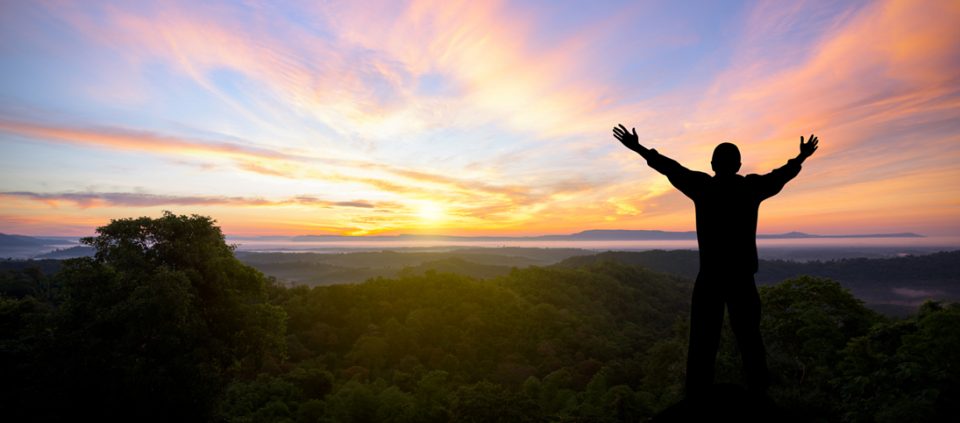I’ve always wondered why so many people flocked out to see John the Baptist in the wilderness. Studying in Chicago many summers ago, I regularly encountered a wild-looking guy on Michigan Avenue with a loudspeaker. He was always alone. Turn your life totally over to Jesus, he said, while there’s still time. Everyone gave him a wide berth.
This preacher in Chicago and the man with locusts on his breath touched on many of the same topics. The downtown walkers avoided the loud exhorter, but those in the wilderness went out of their way to locate John.
I suppose they could have made appointments with a priest in Jerusalem. “Come by my office on Thursday at 4 and we’ll chat about what’s bothering you,” says the friendly pastor. But John didn’t indulge in theological niceties. He went straight for the heart of the matter. And people flocked out to see him. I can’t imagine this happening today.
In a poem titled “Tripping Over Joy,” the Persian poet Hafiz (1325-1390) likens a saint’s experience along the spiritual path to “a sublime chess game with God.” The last divine move was so fantastic that the saint bursts into laughter, saying, “I surrender!” Hafiz turns to the reader (me) and says, “Whereas, my dear, I am afraid you still think you have a thousand serious moves.”
•••
This past summer I rode my loaded bicycle with an old friend, Larry, from Puget Sound to Bar Harbor, Maine—4,226 miles, 77 days—along the Northern Tier Route. One surprise was how the bicycle became a conversation magnet for hundreds of chats with strangers from all walks of life. The trip was a fascinating way to experience the sights, sounds and diverse convictions and beliefs of America. We rode through rural Montana and the inner cities of Fargo, N.D.; Cleveland; and Buffalo, N.Y.
One morning in Sentinel Butte, N.D. (population 56), we met Rick, the town mayor and council president of Trinity Lutheran Church, where he was baptized as a baby and became a lifelong member. Rick poured coffee for us and several guys who walked in. One worked for the local water department and described the challenges of ground that froze 6-feet deep in winter. The general store where we were sitting still serves as the place to share and learn local news.
The Benedictines maintain a strong presence on the North Dakota prairie. Boarding my bike that day—heading east from men shaped for decades by season and soil—I thought of the lesser-known fourth Benedictine vow: stability. This is a promise to stay put, refusing the lure to move around and learning the spiritual wisdom offered by remaining in a specific place over a long period of time.
Our family moved three times during my pastoral career. I hope these changes were in concert with God’s desires but, looking back, I sometimes fear pulling up roots in the name of “call” may have also been a distraction from a closer examination of the challenges of a particular place and what I’d perhaps been avoiding there. Recalling my son’s reaction to an explanation of our family move when he was in sixth grade, I still smile (and wince), his honest words echoing over time: “Well, if God is calling you, I want him to shut up!”
•••
“One who is more powerful than I is coming,” the man of the wilderness says. “He will baptize you with the Holy Spirit and fire” (Luke 3:16).
Jesus the fire-bringer intends to make saints out of all the baptized. He aims to burn away the chaff of our lives and say, “Checkmate, people of God.”
Distracted, always in motion, we can, of course, insist that we have several other serious moves left to play. Or we can laugh with glee (and maybe relief) and say, “OK, Lord, what’s next? What about this place, this moment, have I overlooked?”
There is nothing so sweet as surrendering.




